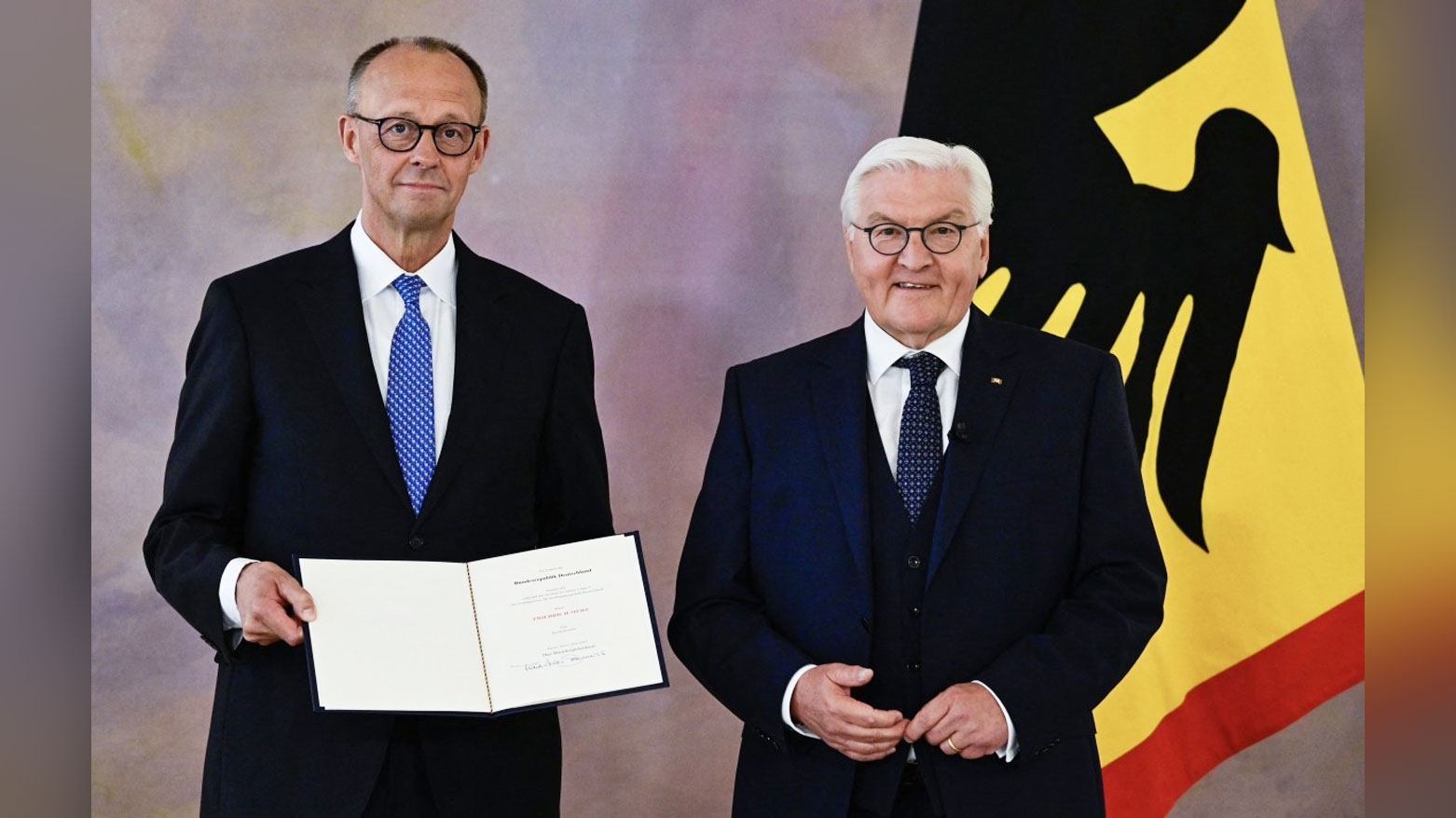Friedrich Merz Elected German Chancellor After Historic Second-Round Vote
In his first statement as chancellor, Merz reaffirmed his intent to curb irregular migration and counter the electoral ascent of the far-right Alternative for Germany (AFD) party, which came in second in the early parliamentary elections held in February.

By Ahora Qadi
ERBIL (Kurdistan24) – In a pivotal parliamentary vote on Tuesday, Friedrich Merz, leader of Germany’s conservative Christian Democratic Union (CDU), was elected as the country’s new chancellor, securing an absolute majority in a dramatic second-round ballot that marked a first in Germany’s post-war political history.
Merz, 69, clinched 325 votes out of 630 in the Bundestag, after an unexpected failure to win in the first round—an unprecedented development since the founding of the Federal Republic in 1949. His victory follows months of political paralysis, which ended on Monday with the formal signing of a coalition agreement between the CDU, its sister party the Christian Social Union (CSU), and the Social Democratic Party (SPD).
A Return to Power for Conservatives
With Merz at the helm, the conservative alliance has returned to power just three years after stepping down, breaking a prolonged impasse in Europe’s largest economy. The coalition government pledged to rejuvenate Germany’s stagnating economy and implement a sweeping modernization of its military.
In his first statement as chancellor, Merz reaffirmed his intent to curb irregular migration and counter the electoral ascent of the far-right Alternative for Germany (AFD) party, which came in second in the early parliamentary elections held in February. “We must restore order to our migration system and protect our national identity,” he declared.
A Political Comeback Marked by Tenacity
Merz's rise to the chancellorship comes after a decades-long political journey characterized by dramatic setbacks and revivals. A veteran of both the European Parliament (since 1989) and the German Bundestag (since 1994), Merz built his reputation as a fiscally conservative, pro-market politician under Chancellor Helmut Kohl.
In 2000, following a CDU donation scandal, he was appointed head of the parliamentary group. But in 2002, Angela Merkel—then the CDU chairwoman—demanded his post, pushing Merz into the background as she began her historic 16-year reign as Germany’s chancellor.
What followed was a bitter power struggle that culminated in Merz’s resignation from all senior party roles. By 2009, he had exited the political arena entirely, turning his focus to law and finance. He became a wealthy corporate lawyer and from 2016 to 2020 chaired the supervisory board of the German branch of BlackRock, the world’s largest asset manager.
Revival and Resurgence
Merz reentered the political spotlight during Merkel’s final term. After two failed bids for CDU leadership, he finally succeeded in 2022 with 62% of the internal party vote. Since then, the CDU steadily climbed to the top of opinion polls, culminating in Tuesday’s election triumph.
A staunch advocate of nuclear energy and deregulation, Merz has maintained a consistently hardline stance on migration. His rhetoric often echoes the nationalist tones of the early 2000s, calling for a "leading culture" in German society and warning against the challenges posed by what he terms “foreign influence.”
A New Direction in Foreign and Defense Policy
Merz has also signaled a shift in foreign policy, advocating a more assertive role for Germany on the international stage. Speaking at the Munich Security Conference last week, he emphasized Berlin’s obligation to support Ukraine and endorsed its future NATO membership. He also promised to accelerate the modernization of the Bundeswehr, aiming to make it the most powerful military force in Europe.
An Elder Statesman at the Helm
At 69, Merz becomes the oldest German chancellor since Konrad Adenauer, who assumed office at the age of 73 in 1949. His election marks not just a political victory, but a personal vindication after decades of political rivalry and exile.
From being sidelined by Merkel to standing atop Germany’s political pyramid, Merz's journey reflects a narrative of resilience, strategic reinvention, and a return to conservative leadership in a changing European landscape.
